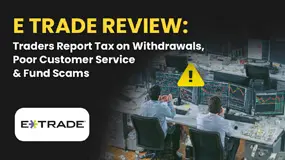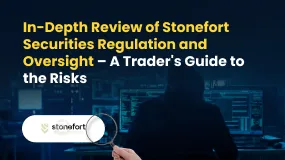简体中文
繁體中文
English
Pусский
日本語
ภาษาไทย
Tiếng Việt
Bahasa Indonesia
Español
हिन्दी
Filippiiniläinen
Français
Deutsch
Português
Türkçe
한국어
العربية
Choosing the Right Crypto Wallet: A Comprehensive Guide
Abstract:Selecting the best crypto wallet for your needs requires careful consideration of factors like security, user-friendliness, supported cryptocurrencies, backup options, fees, and community trust.

By: Damian Okonkwo

Introduction
With the growing cases of crypto scams today, securing one's digital assets should always be a priority for all crypto traders. In this article, we will explore the various types of crypto wallets and provide insights on the best crypto wallet that offers greater security, accessibility, and convenience for users today.
Types of Crypto Wallets
Below are the four common types of crypto wallets used for storing cryptos:
a) Hardware Wallets:
Hardware wallets are physical devices designed to store your cryptocurrencies offline. These wallets are often considered the gold standard in security. Notable options include Ledger Nano S, Ledger Nano X, and Trezor. They provide robust protection against hacking and online threats since they are not connected to the internet when not in use.
b) Software Wallets:
Software wallets come in various forms, including desktop, mobile, and online wallets. Examples include Exodus, Electrum, and Coinbase. While these wallets are convenient and user-friendly, they are more susceptible to online threats. It's crucial to choose reputable providers and implement strong security practices.
c) Paper Wallets
A paper wallet is a physical document containing your cryptocurrency private keys and public addresses. It's an offline storage option, making it immune to online attacks. However, it's important to keep the physical document safe from physical damage or loss.
d) Web Wallets
Web wallets are online platforms that allow you to access your cryptocurrencies from any device with an internet connection. Popular web wallets include MyEtherWallet and Blockchain.info. Security can be a concern with web wallets, as they are hosted online and can be vulnerable to phishing attacks.
Factors to Consider When Choosing a Crypto Wallet
a) Security
Your primary concern should be the security of your crypto assets. Hardware wallets and paper wallets offer the highest level of security, as they are offline and immune to most online threats. Ensure the wallet provider follows robust security protocols and offers features like two-factor authentication (2FA).
b) User-Friendliness
Consider your level of technical expertise. While hardware wallets provide top-tier security, they might be less intuitive for beginners. Software wallets and mobile apps are generally more user-friendly but may compromise security to some extent.
c) Supported Cryptocurrencies
Check whether the wallet supports the cryptocurrencies you plan to store. Not all wallets support the same range of digital assets.
d) Backup and Recovery
Ensure your chosen wallet offers a secure and convenient way to back up and recover your funds. Losing access to your wallet can mean losing your cryptocurrencies forever.
e) Fees
Different wallets may charge various fees for transactions or maintenance. Consider these costs in your decision-making process.
f) Community Trust and Reputation
Research online to gauge the community's trust and the wallet's reputation. Look for reviews, forums, and social media discussions about the wallet you're interested in.
Conclusion
Selecting the best crypto wallet for your needs requires careful consideration of factors like security, user-friendliness, supported cryptocurrencies, backup options, fees, and community trust. Ultimately, the choice will depend on your individual preferences and risk tolerance. It's advisable to diversify your storage methods by using a combination of hardware and software wallets to balance security and accessibility.
Remember that the crypto landscape is continually evolving, and staying informed about the latest wallet developments and security practices is crucial to safeguarding your digital assets. Always exercise caution, and never share your private keys or recovery phrases with anyone.

Disclaimer:
The views in this article only represent the author's personal views, and do not constitute investment advice on this platform. This platform does not guarantee the accuracy, completeness and timeliness of the information in the article, and will not be liable for any loss caused by the use of or reliance on the information in the article.
Read more

E TRADE Review: Traders Report Tax on Withdrawals, Poor Customer Service & Fund Scams
Has your E Trade forex trading account been charged a withholding tax fee? Did your account get blocked because of multiple deposits? Did you have to constantly call the officials to unblock your account? Failed to open a premium savings account despite submitting multiple documents? Is fund transfer too much of a hassle at E Trade? Did you find the E Trade customer support service not helpful? In this E Trade review article, we have shared certain complaints. Take a look!

mBank Exposed: Top Reasons Why Customers are Giving Thumbs Down to This Bank
Do you find mBank services too slow or unresponsive? Do you find your account getting blocked? Failing to access your account online due to several systemic glitches? Can’t perform the transactions on the mBank app? Do you also witness inappropriate stop-level trade execution by the financial services provider? You are not alone! Frustrated by these unfortunate circumstances, many of its clients have shared negative mBank reviews online. In this article, we have shared some of the reviews. Read on!

In-Depth Uniglobe Markets Commission Fees and Spreads Analysis – What Traders Should Really Know
For experienced traders, the cost of execution is a critical factor in broker selection. Low spreads, fair commissions, and transparent pricing can be the difference between a profitable and a losing strategy over the long term. This has led many to scrutinize the offerings of brokers like Uniglobe Markets, which presents a tiered account structure promising competitive conditions. However, a professional evaluation demands more than a surface-level look at marketing claims. It requires a deep, data-driven analysis of the real trading costs, set against the backdrop of the broker's operational integrity and safety. This comprehensive Uniglobe Markets commission fees and spreads analysis will deconstruct the broker's pricing model, examining its account types, typical spreads, commission policies, and potential ancillary costs. Using data primarily sourced from the global broker inquiry platform WikiFX, we will provide a clear-eyed view of the Uniglobe Markets spreads commissions prici

In-Depth Review of Stonefort Securities Regulation and Oversight – A Trader's Guide to the Risks
For experienced traders, the process of selecting a new broker transcends a simple comparison of spreads and leverage. It is a meticulous due diligence exercise where the integrity of the broker's regulatory framework is paramount. Stonefort Securities, a relatively new entrant in the crowded brokerage space, presents a complex and often contradictory profile. On one hand, it boasts a modern MT5 platform and a stream of positive user testimonials. On the other hand, it is shadowed by severe regulatory warnings that question the very foundation of its operations. This in-depth review focuses on the core issue for any long-term trader: Stonefort Securities regulation and oversight. We will dissect the broker's corporate structure, scrutinize its licensing claims, and analyze what the data implies for trader protection and fund security. For traders evaluating whether Stonefort Securities is a trustworthy partner, understanding these details is not just important—it is essential.
WikiFX Broker
Latest News
WikiFX's New Evaluation of ATM Capital LTD: Does its License Protect the Arab Investor?
How a Fake Moomoo Ad Led to the “New Dream Voyage 5” Scam
Is Axi Legit? A Data-Driven Analysis of Its Regulatory Standing and Trader Feedback
Trive Investigation: High Score, Hidden Risk - The Profit Paradox
In-Depth Uniglobe Markets Commission Fees and Spreads Analysis – What Traders Should Really Know
FXPesa Review: Are Traders Facing High Slippage, Fund Losses & Withdrawal Denials?
Bessent believes there won't be a recession in 2026 but says some sectors are challenged
mBank Exposed: Top Reasons Why Customers are Giving Thumbs Down to This Bank
Young Singaporean Trader Grew USD 52 into a USD 107,700 Portfolio
Is GGCC Legit? A Data-Driven Analysis for Experienced Traders
Currency Calculator



